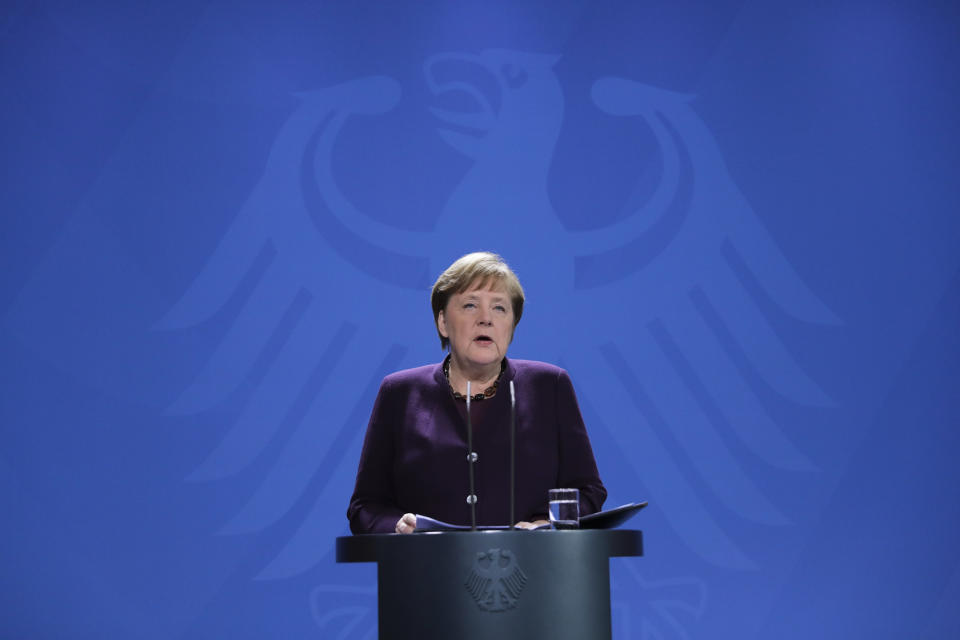Germany's public health agency says coronavirus pandemic could take 'two years to run its course'

The coronavirus pandemic is likely to take about two years to run its course, the head of Germany's public health agency said.
Lothar Wieler, president of the Robert Koch Institute, told a news conference on Tuesday that it depended on the speed with which a vaccine against the highly infectious virus was developed.
But he estimated that eventually some 60% to 70% of the global population would have been infected, recovered and acquired immunity, but it was impossible to say how fast that would happen.
"Our working assumption is that it will take about two years," he said.
He added that the timing not only depended on how long it would take to get a vaccine developed, but also how long it would take to be deployed.
Latest coronavirus news, updates and advice
Live: Follow all the latest updates from the UK and around the world
Fact-checker: The number of Covid-19 cases in your local area
Explained: Symptoms, latest advice and how it compares to the flu

"We do not yet know what the death rate will look like in the end," he told reporters.
He said that without the strict social distancing measures announced on Monday by chancellor Angela Merkel, Germany could end up facing millions of coronavirus cases.
"We want to avoid that," he said.
The institute, the German government’s primary scientific institution in the field of biomedicine, said it was raising the risk level in Germany to "high".
Read more: The mental health toll of the coronavirus epidemic
He also said hospitals would have to at least double their intensive care capacity as one in five cases was serious.
According to the Johns Hopkins interactive coronavirus map, Germany’s total confirmed cases is 7,689, with 23 deaths and 67 recoveries.

On Monday, Germany's state of Bavaria has declared a "disaster" situation as the number of new coronavirus cases continue to rise.
First minister Markus Söder has put new "drastic" restrictions on the public to slow the spread of the virus.
Read more: Brexit transition period will not be extended because of coronavirus, says government
“The situation is very serious and changing daily, unfortunately not for the better,” the Bavarian leader said, adding that the regional government could buy stakes in struggling companies to prevent insolvencies.
Most restrictions come into force from Tuesday and throughout the week, The Local.de reported.
The latest numbers from the main European countries
Italy 27,980
Spain 11,279
Germany 7,689
France 6,664
Switzerland 2,330
United Kingdom 1,553

 Yahoo News
Yahoo News 

